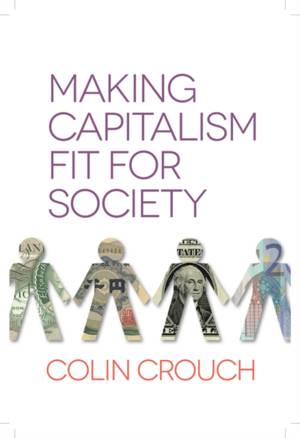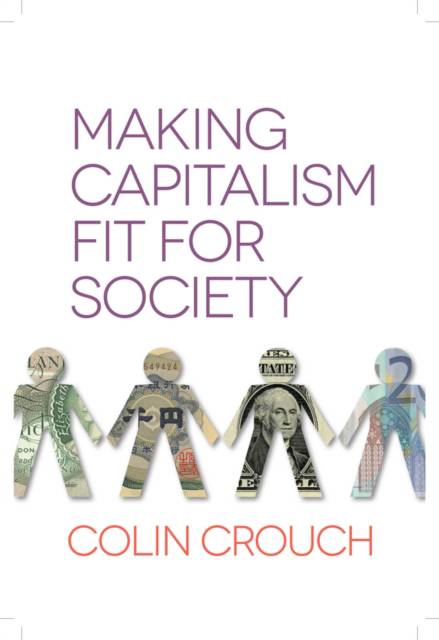
- Afhalen na 1 uur in een winkel met voorraad
- Gratis thuislevering in België vanaf € 30
- Ruim aanbod met 7 miljoen producten
- Afhalen na 1 uur in een winkel met voorraad
- Gratis thuislevering in België vanaf € 30
- Ruim aanbod met 7 miljoen producten
Zoeken
Omschrijving
Capitalism is the only complex system known to us that can provide an efficient and innovative economy, but the financial crisis has brought out the pernicious side of capitalism and shown that it remains dependent on the state to rescue it from its own deficiencies. Can capitalism be reshaped so that it is fit for society, or must we acquiesce to the neoliberal view that society will be at its best when markets are given free rein in all areas of life?
The aim of this book is to show that the acceptance of capitalism and the market does not require us to accept the full neoliberal agenda of unrestrained markets, insecurity in our working lives, and neglect of the environment and of public services. In particular, it should not mean supporting the growing dominance of public life by corporate wealth. The world's most successful mature economies are those that fully embrace both the discipline of the market and the need for protection against its negative outcomes. Indeed, a continuing, unresolved clash between these two forces is itself a major source of vitality and innovation for economy and society. But maintenance of that tension depends on the enduring strength of trade unions and other critical groups in civil society - a strength that is threatened by neoliberalism's increasingly intolerant onward march.
Outlining the principles for a renewed and more assertive social democracy, this timely and important book shows that real possibilities exist to create a better world than that which is being offered by the wealthy elites who dominate our public and private lives.
The aim of this book is to show that the acceptance of capitalism and the market does not require us to accept the full neoliberal agenda of unrestrained markets, insecurity in our working lives, and neglect of the environment and of public services. In particular, it should not mean supporting the growing dominance of public life by corporate wealth. The world's most successful mature economies are those that fully embrace both the discipline of the market and the need for protection against its negative outcomes. Indeed, a continuing, unresolved clash between these two forces is itself a major source of vitality and innovation for economy and society. But maintenance of that tension depends on the enduring strength of trade unions and other critical groups in civil society - a strength that is threatened by neoliberalism's increasingly intolerant onward march.
Outlining the principles for a renewed and more assertive social democracy, this timely and important book shows that real possibilities exist to create a better world than that which is being offered by the wealthy elites who dominate our public and private lives.
Specificaties
Betrokkenen
- Auteur(s):
- Uitgeverij:
Inhoud
- Aantal bladzijden:
- 216
- Taal:
- Engels
Eigenschappen
- Productcode (EAN):
- 9780745672236
- Verschijningsdatum:
- 7/10/2013
- Uitvoering:
- Paperback
- Formaat:
- Trade paperback (VS)
- Afmetingen:
- 137 mm x 213 mm
- Gewicht:
- 272 g

Alleen bij Standaard Boekhandel
+ 80 punten op je klantenkaart van Standaard Boekhandel
Beoordelingen
We publiceren alleen reviews die voldoen aan de voorwaarden voor reviews. Bekijk onze voorwaarden voor reviews.







